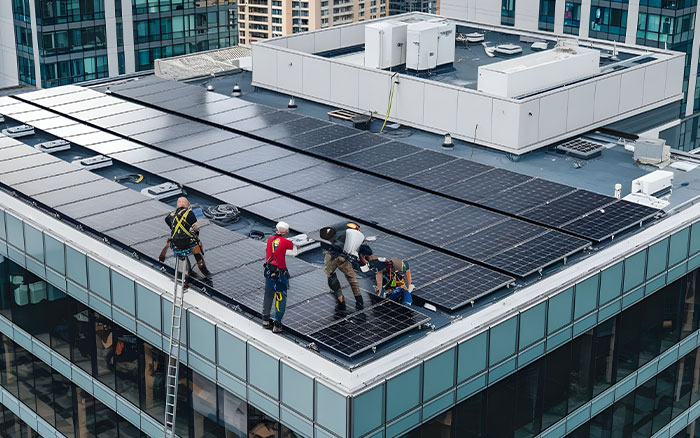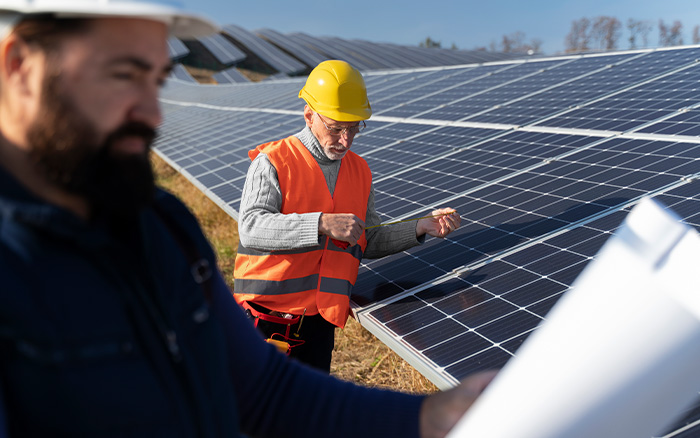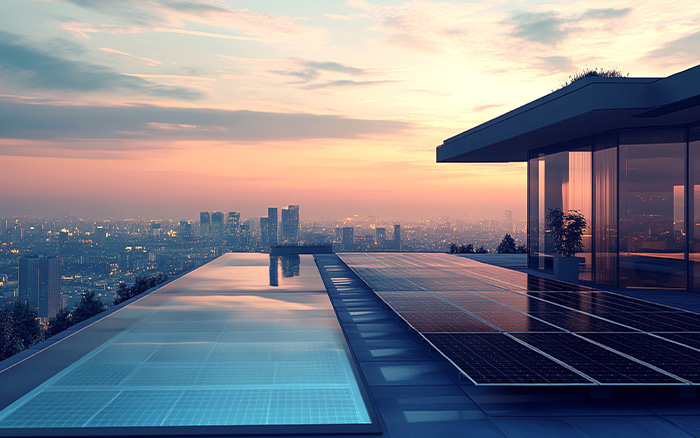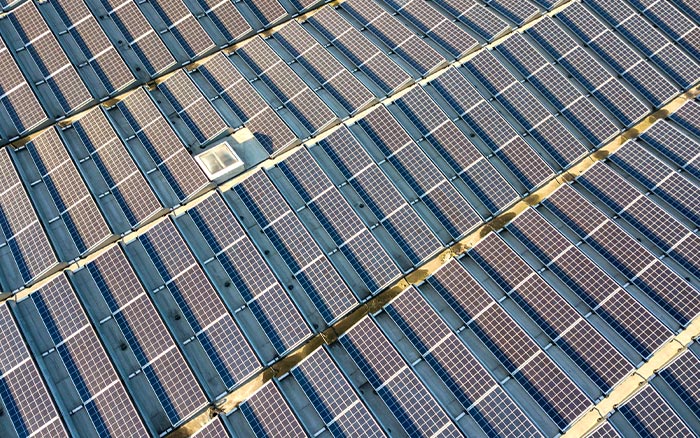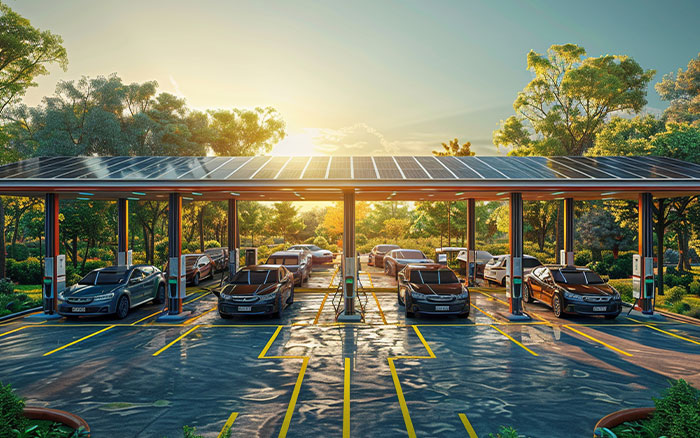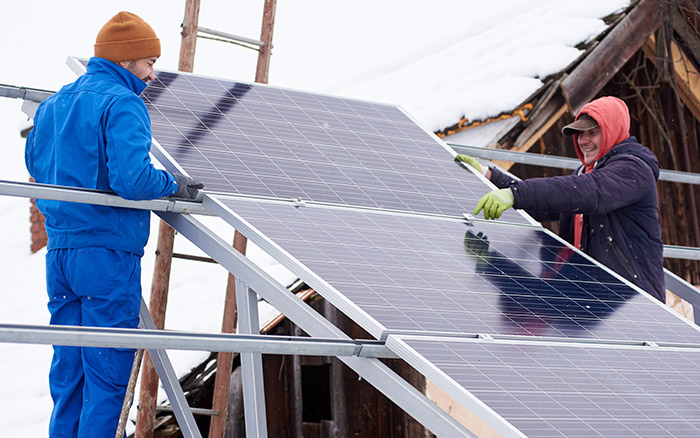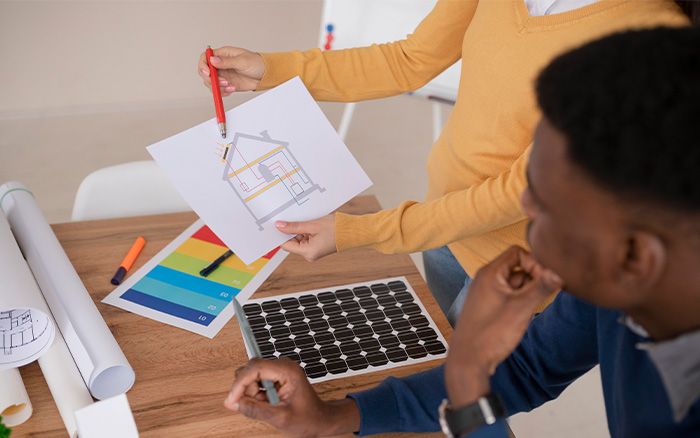
The Homeowner's Guide to Solar Energy Systems on New
Homes.
Solar energy is a rising star in renewables. It's popular with homeowners who want to
cut energy costs, reduce their carbon footprint, and boost property values. With new
tech and cheaper solar panel installs, solar energy is now popular in new and
existing homes. This guide covers key points for installing a solar energy system in
your new home. It includes the benefits, the installation process, and solar
ideas for your home.
Why Go Solar on New Homes?
- Cost Efficiency
A big benefit of adding solar systems when building your new home is cost
savings. If builders make your home "solar-ready" during construction, it will
cut labor and retrofitting costs. It means they will install solar panels later.
NREL research shows that installing solar during construction can cut costs by
up to 20%. Also, this timing lets homeowners use the best roof and electrical
setups. It makes future maintenance simpler and cheaper.
- Environmental Impact
Solar energy is a clean, renewable energy source. It produces no harmful
emissions. Every kWh of solar energy reduces fossil fuel use. It cuts
greenhouse gas emissions and air pollutants. Installing solar energy systems
in your home helps fight climate change and improve air quality.
- Increased Property Value
Homes with solar energy systems tend to sell faster and for more. Several studies
show that homeowners who install solar panels see an increase in property value.
This increase can range between 4-6%, depending on your location. If you plan to
sell your home in the future, solar installation will likely provide a strong
return on investment.
Solar Panel Installation: Key Considerations
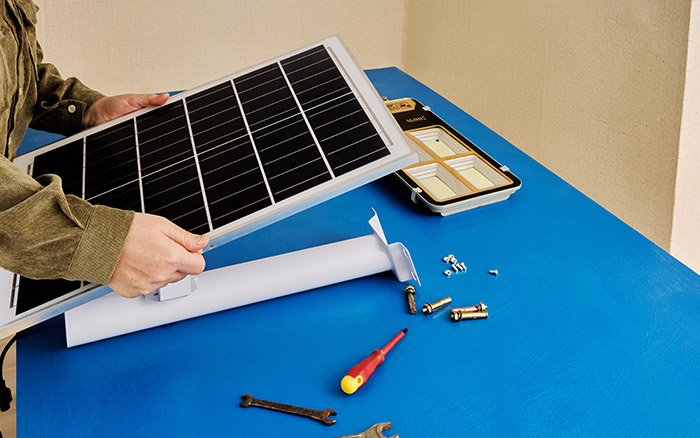
-
Roof Suitability
When it comes to installing solar panels, the roof is one of the most important
aspects to consider. A south-facing roof, at a 30-45 degree angle, is best for
solar energy. Before construction, ensure the roof design accounts for this.
Adjust the roof's steepness or position as needed. Also, avoid placing chimneys,
vents, or other fixtures that could shade the roof. Shading can reduce
electricity production.
- Structural Strength
Solar panels add weight to the roof. Most modern roofs can handle it. But, you
must check your roof's load capacity. If necessary, the construction team can
integrate additional structural supports to ensure the roof can bear the weight
of the solar panel system.
- Electrical System Setup
Installing solar energy systems requires specific electrical setups. You need a
solar inverter. It converts the DC from the panels into AC for your home. Make
sure your home's electrical system can support a solar energy system. This will
save you time and money on retrofits.
Solar Ideas for Your Home
There are various solar energy system designs and configurations to match your
specific needs. Here are some innovative solar ideas for your home:
- Rooftop Solar Panels
Rooftop solar panels are the most common and cost-effective solar energy solution for
new
homes. When installed during construction, panels can be seamlessly integrated into
the
home’s design, maximizing energy generation and minimizing visual impact.
- Solar Shingles
If you're concerned about the aesthetics of traditional solar panels, consider solar
shingles. These innovative photovoltaic systems resemble regular roof tiles,
blending
seamlessly with the roof while producing solar energy. Although they are more
expensive
than standard solar panels, solar shingles offer a sleek, modern solution for
design-conscious homeowners.
- Solar Carports
Solar carports are another great option, especially if your roof isn't ideal for
solar panel installation. A carport with solar panels can generate energy for your
home while also providing covered parking for your vehicles. Some solar carports
also come with integrated electric vehicle (EV) charging stations.
The Solar Installation Process
If you’re considering installing solar panels in Delaware, here’s what you can expect
from the solar panel installation process:
- Site Assessment: A solar installer will visit your home to assess the roof's
suitability and the best location for the panels. This assessment will include
checking the orientation, angle, and shading of the roof.
- Design and Permitting: Based on the assessment, the installer will design a
system
that meets your energy needs. They will also handle the necessary permits, such as
zoning permits and utility approvals.
- Installation: The solar panel installation process typically takes a few
days,
depending on the system size. This process involves mounting the panels, connecting
them to your electrical system, and installing an inverter.
- Inspection and Activation: After installation, your system will need to pass
a final
inspection to ensure it meets local safety and building codes. Once approved, your
utility provider will connect the system to the grid, and you can start generating
solar power.
Solar Panel Ideas for Homes in Delaware
For Delaware residents, solar panel installation has become increasingly popular. With
state incentives like the Solar Renewable Energy Credit (SREC) program and federal tax
credits, homeowners can significantly reduce the cost of installation. Additionally,
Delaware has excellent solar potential due to its sunny climate, making it a prime
location for solar energy generation.
Delaware solar panels are also eligible for net metering, allowing homeowners to sell
excess electricity back to the grid and earn credits on their utility bills. With so
many incentives, solar energy is a smart investment for Delaware homeowners.
Solar Panel Installation Delaware: Choosing the Right
System
If you're looking for solar panel installation in Delaware, it’s important to choose
a reliable installer who can guide you through the process. Look for companies that
offer pre-installation assessments, warranties, and ongoing maintenance services.
Consider whether the company provides integrated solutions like battery storage or
EV charging stations, which can further enhance the value of your solar energy
system.
Conclusion
Installing a solar system while building your new home is a smart choice. It's
cost-effective, eco-friendly, and boosts your home's value. With so many solar options
for your home, you can customize your system. You can choose from rooftop panels, solar
shingles, and carports. This will meet your energy needs and design preferences.
If you want to explore solar panel ideas for your home in Delaware, contact a trusted
installer. Start your solar journey today.

